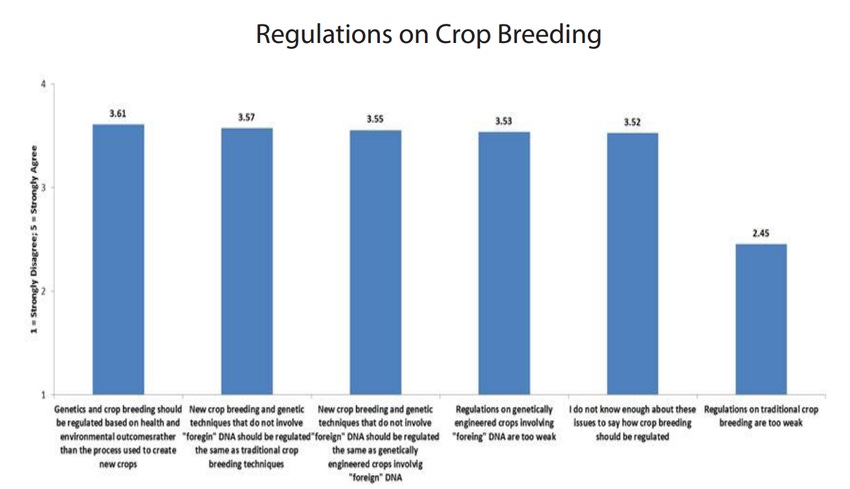Survey shows consumers unsure of crop breeding regulations
Most common answer was “neither agree nor disagree.”

Consumers aren’t really sure how they feel about the regulation of crop breeding, specifically genetically engineered crop breeding, the latest Oklahoma State University “Food Demand Survey” (FooDS) showed. FooDS, a monthly online survey with a sample size of at least 1,000 individuals, tracks consumer preferences and sentiment on the safety, quality and price of food consumed at home and away from home, with a particular focus on meat demand.
A newly added ad hoc question posed the following question: “Crops produced through certain types of genetic engineered that involve the transfer of genes from one species to another (i.e., “foreign DNA”) are currently regulated by three U.S. agencies (the USDA, FDA, and EPA) to check for environmental impacts and impacts on human health. By contrast, crops produced through traditional breeding methods, include hybridization, are not regulated by the U.S. government. To what extent do you agree or disagree with the following statements?”
Individuals responded on a five-point scale (1=strongly disagree, 2=somewhat disagree, 3=neither disagree nor agree, 4=somewhat agree, or 5=strongly agree) to six statements: i) Regulations on traditional crop breeding are too weak, ii) Regulations on genetically engineered crops involving “foreign” DNA are too weak, iii) New crop breeding and genetic techniques that do not involve “foreign” DNA should be regulated the same as traditional crop breeding techniques, iv) New crop breeding and genetic techniques that do not involve “foreign” DNA should be regulated the same as genetically engineered crops involving “foreign” DNA, v) Genetics and crop breeding should be regulated based on health and environmental outcomes rather than the processed used to create new crops, and vi) I do not know enough about these issues to say how crop breeding should be regulated.
According to the survey results, the most common answer was “neither agree nor disagree” for all statements. However, “Regulations on traditional crop breeding are too weak” received the least agreement. The statement “genetics and crop breeding should be regulated based on health and environmental outcomes rather than the processed used to create new crops” received the highest level of agreement, though the results were still similar to the other statements.
About the Author(s)
You May Also Like


